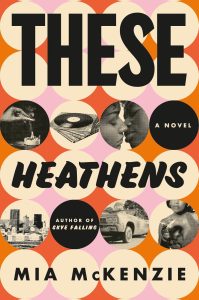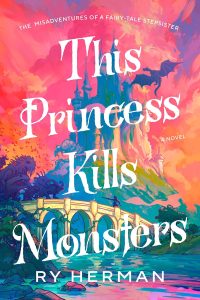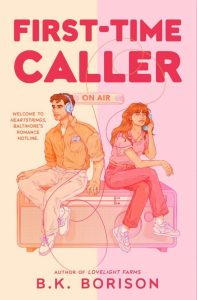
Kirsten Miller’s newest novel is a lively satire with a serious heartbeat, set in Troy, Georgia, where a culture war over “appropriate” reading becomes a full town reckoning. If you loved The Change for its bite and warmth, you will find a similar cocktail here: sharp humor, big-hearted characters, and a clear-eyed look at how stories transform people who dare to read them.
The setup
Lula Dean, newly minted small-town celebrity and self-appointed guardian of morality, launches a crusade to purge the public library of “inappropriate” titles. To model good behavior, she stocks a little free library in front of her house with books she believes are wholesome. Enter Beverly Underwood, Lula’s lifelong rival and a member of the school board, and Beverly’s college-age daughter, Lindsay. Under cover of night, Lindsay slips banned books into Lula’s hutch and hides them inside sanitized dust jackets. The Southern Belle’s Guide to Etiquette becomes a Trojan horse for The Girl’s Guide to the Revolution, and readers across Troy start encountering ideas they were never meant to see.
How the story is told
The novel unfolds as a mosaic of linked chapters, each told from the viewpoint of a different townsperson: a mail carrier, a prom queen, housewives, a farmer, a former district attorney. The structure reads like a suite of interlocking short stories that gradually assemble into a full panorama of the town. It is character forward, energetic, and easy to track despite the large cast, in part because Miller anchors each voice with crisp context and a distinct emotional arc.
What works
- Satire with sting and warmth: The book treats censorship with the ridicule it deserves while still finding empathy for people caught in fear based narratives. Miller’s jokes land, yet the story never loses sight of how books can crack open a life.
- A diverse, textured cast: Readers from many backgrounds step onto the page with recognizable hopes and hurts. Beverly Underwood is especially winning, and elders like Wilma Jean steal scenes with quiet wisdom.
- A love letter to libraries: Chapters are titled after notable books, some famously challenged, and the text shows how a single reading experience can tilt a person toward courage, curiosity, or compassion.
- Audiobook note: January LaVoy’s performance handles the wide range of voices with verve. A few character timbres may feel mismatched to age or gender, but the production overall is engaging and polished.
What might divide readers
- Moral binaries: In a story about the harm of rigid thinking, some antagonists feel a touch flat. Nuance occasionally gives way to clear team colors, which serves the satire but can blunt complexity.
- Everything bagel of themes: Misogyny, racism, homophobia, antisemitism, religious manipulation, media distortion, historical erasure, and more appear in rapid succession. Each is urgent, though the pileup may feel crowded.
- A tidy finish: The final chapters wrap threads with neat bows. Satisfying for some, a little too orderly for others who prefer messier realism.
- Political heat: The stance against censorship and reactionary politics is explicit. Readers who bristle at overt politics in fiction may find the temperature high.
Bottom line
Lula Dean’s Little Library of Banned Books is a fizzy, feel-it-in-your-chest celebration of reading as an act of personal freedom. It is funny, pointed, and built on the radical belief that access to stories changes lives. Come for the town gossip and comic set pieces, stay for the way a hidden novel inside a prim dust jacket nudges a community toward truth.
👉 Get your copy here: Buy on Amazon


